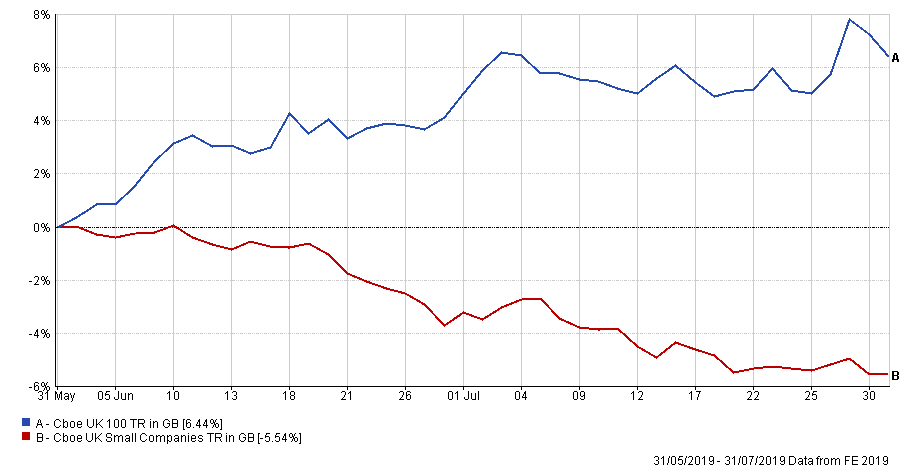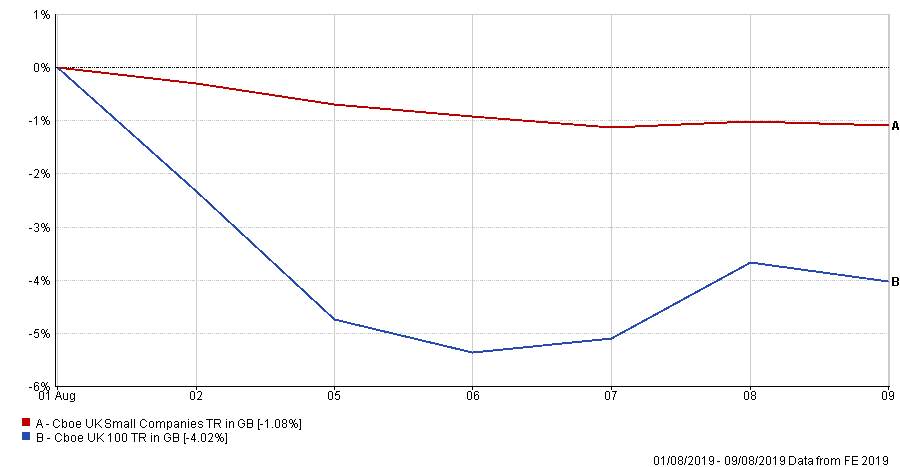Advertorial: Investment advice from Philip Howe from Raymond James in Ashton
Date published: 14 August 2019

Philip Howe from Raymond James Investment Management
The Brexit Effect?
With the holiday season in full swing most of us will know all too well the impact the concerns of a “no deal” Brexit have had on the pound. Whilst we can all share in the pain as far as purchasing overseas currencies is concerned, the impact on stock markets is not always as straight forward.
The UK Stock Market – an international index
The FTSE 100 is the most well known of the UK indices, covering the 100 largest companies listed on the UK stock market, also known as “large cap”. However, when you delve a bit deeper you realise that it doesn’t represent the UK economy as closely as you might think.
Many of the largest companies listed on the UK stock market receive a significant amount of their earnings from overseas. In some cases, such as gold or mining companies, they can in fact receive 100% of their earnings from outside the UK. This means that the impact of the UK economy on their share price is virtually non-existent. However, this does mean that they are heavily exposed to changes in exchange rates.
When the value of the Pound falls the profit these companies make overseas is worth more once it is translated back into Sterling. With over 70% of total earnings from FTSE 100 companies coming from overseas this explains why when the Pound weakens the value of the index goes up.
Opportunities elsewhere in the UK stock market
However, the UK stock market is not just the FTSE 100. The next 250 largest companies are known as “mid cap”, and then most of the rest falls under “small cap”. As you move down from larger to smaller companies you generally find they have less exposure to overseas economies and are therefore more influenced by the UK economy. As the potential for a “no deal” Brexit has become greater over the last couple of months the divergence in performance between larger, internationally focused, companies and smaller, domestically focused, companies has got wider.

As this chart shows, the view of financial markets is that a “no deal” Brexit will harm the UK economy. However, if we reach a point where a deal or an alternative outcome is secured, then we could see a reversal of fortunes and it could prove to be an opportune time to invest in mid and small cap shares.
Impact of US-China Trade discussions
The other big issue dominating stock markets is the ongoing US-China trade dispute. Those talks deteriorated recently and on this occasion it is the large cap stocks that are affected more.

Diversification is the key
What does all this tell us? There is always something that impacts on stock markets and the old adage of not putting all your eggs in one basket remains as important today as it always has. Therefore, it is important to be diversified, to spread the risk not only within your UK equity exposure but also beyond equities into other asset classes. A good investment manager will be making changes to your portfolio, continually monitoring global and domestic events and trying to smooth out the ups and downs of markets.
If you find that little or no changes are being made to your portfolio then, whilst there are periods this would be the right policy, it is worth just asking the question of what your investment manager is doing to prepare for all possible outcomes of the main drivers of the volatility we have seen over the last few months.
With investment, your capital is at risk.
Articles are general information and not a recommendation to act. Please seek independent investment advice before entering into any financial transaction.

Most Viewed News Stories
- 1What grooming gang chair announcement means for Oldham as town to be at centre of investigation
- 2Cricket club license terms agreed as it is ‘crucial to its survival’
- 3Extra police powers in place following disorder in Oldham town centre
- 4Oldham mechanic-turned-mentor celebrates two major awards
- 5Man charged following probe into a series of burglaries across Oldham and Tameside





